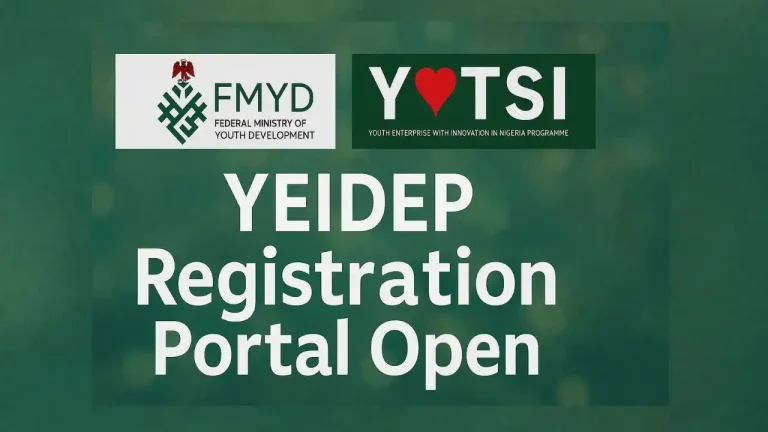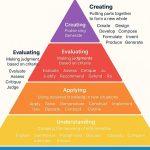
ITF SUPA Begins Screening 15,000 Artisans in Plateau State to Drive National Skill Revolution
Kindly Share this post:
The intensive two-day screening exercise, which kicked off on Wednesday at the ITF Vocational Training Centre in Jos, saw thousands of eager applicants vying for a spot in this transformative empowerment scheme. This step is vital to ensuring that only genuine and qualified individuals are admitted into the rigorous training phase.
ITF SUPA Screening Rationale
Table of Contents
ToggleSpeaking to the press after addressing the assembled artisans, the Director-General of the Industrial Training Fund, Dr. Afiz Ogun, underscored the paramount importance of the physical screening process. He stressed that verification is essential for maintaining transparency and preventing fraud.
“We need to screen the artisans meticulously. We must ascertain their identities and ensure that applications weren’t submitted by proxy,” Dr. Ogun explained. This physical verification guarantees that the intended beneficiaries are the ones who ultimately receive the training, securing the programme’s integrity.
The ultimate goal of the SUPA programme, according to Dr. Ogun, is profound social impact. “We are committed to lifting as many young Nigerians as possible off the streets and providing them with a path to financial independence,” he stated.
Scale and Scope of SUPA
- Target in Plateau: 15,000 artisans are slated for screening in Plateau State alone within this period.
- Wider Reach: Similar verification exercises are concurrently taking place in other states across the federation, with dedicated ITF officers operating at the local government level to ensure comprehensive coverage.
- National Vision: SUPA is an integral part of the Federal Government’s Renewed Hope agenda, aimed at empowering citizens with practical, globally competitive skills.
The Breadth of Training: 24 Key Trade Areas
The Skill-Up Artisans (SUPA) programme offers training across an impressive portfolio of 24 distinct trade areas, carefully selected to meet the demands of the modern labour market and the growing digital economy. This comprehensive approach ensures that participants are trained in high-demand vocations, making them highly employable or capable entrepreneurs.
Key trade areas include, but are not limited to:
- Information and Communications Technology (ICT): Catering to the rapidly expanding digital sector.
- Construction Trades: Including Plumbing and Electrical Installation.
- Manufacturing and Services: Such as Tailoring/Fashion Design and Hospitality.
This diverse selection is designed to provide young Nigerians with the specialized skills needed to become self-reliant and competitive, whether locally or on the international stage.
Call for State-of-the-Art Training Centres
A significant hurdle identified by the ITF in the seamless implementation of the SUPA programme is the inadequate number of standard training centres nationwide. Dr. Ogun made an urgent appeal to both governmental bodies and private sector stakeholders to invest in developing modern, fully-equipped vocational facilities.
Related Posts
“One of our major challenges remains the shortage of suitable centres,” Dr. Ogun admitted. He firmly stated the ITF’s commitment to quality: “We will not onboard trainees into makeshift shops in markets. They must be trained in state-of-the-art facilities equipped with the correct tools.”
This insistence on high standards is directly tied to the programme’s certification outcome. Trainees will be preparing for internationally recognised certification exams, necessitating a world-class learning environment. The possession of these certifications is expected to significantly increase the employability and global competitiveness of Nigerian artisans, potentially opening doors for them in international job markets, as emphasized by the International Labour Organization (ILO) on the importance of skills certification. [Link to a relevant external site like a World Bank report on skills or an ILO page on certification could be placed here: e.g., International Labour Organization (ILO) on skills certification]
A Plea to State Governments
Representing Dr. Ogun, the Director of Technical and Vocational Skills Training, Mrs. Nancy Ekong, specifically urged state governments to play a more active role in bolstering the initiative’s infrastructure.
“We are appealing passionately to state governments to help us build quality training centres with the necessary, up-to-date equipment,” Mrs. Ekong said. “If each state can commit to providing at least three well-equipped centres for key trades, the implementation of this vital national programme will become far more efficient and impactful.” This investment would align with national development strategies often supported by organizations like the African Development Bank (AfDB) in vocational training. [Link to an AfDB or similar development institution’s page on vocational training in Africa could be placed here: e.g., African Development Bank (AfDB) on vocational skills development]
Driving Inclusive Economic Development
The ITF SUPA programme is more than just a training scheme; it is a foundational strategy by the Federal Government to systematically reduce unemployment, enhance the quality of Nigeria’s labour force, and ultimately drive inclusive economic development. By targeting 15,000 artisans in Plateau State and hundreds of thousands nationwide, the government is making a clear investment in human capital—the most critical resource for sustainable national growth. The successful screening in Jos is the first solid step towards realizing this ambitious skill revolution, promising a future where Nigerian artisans are recognized globally for their excellence and technical prowess.








